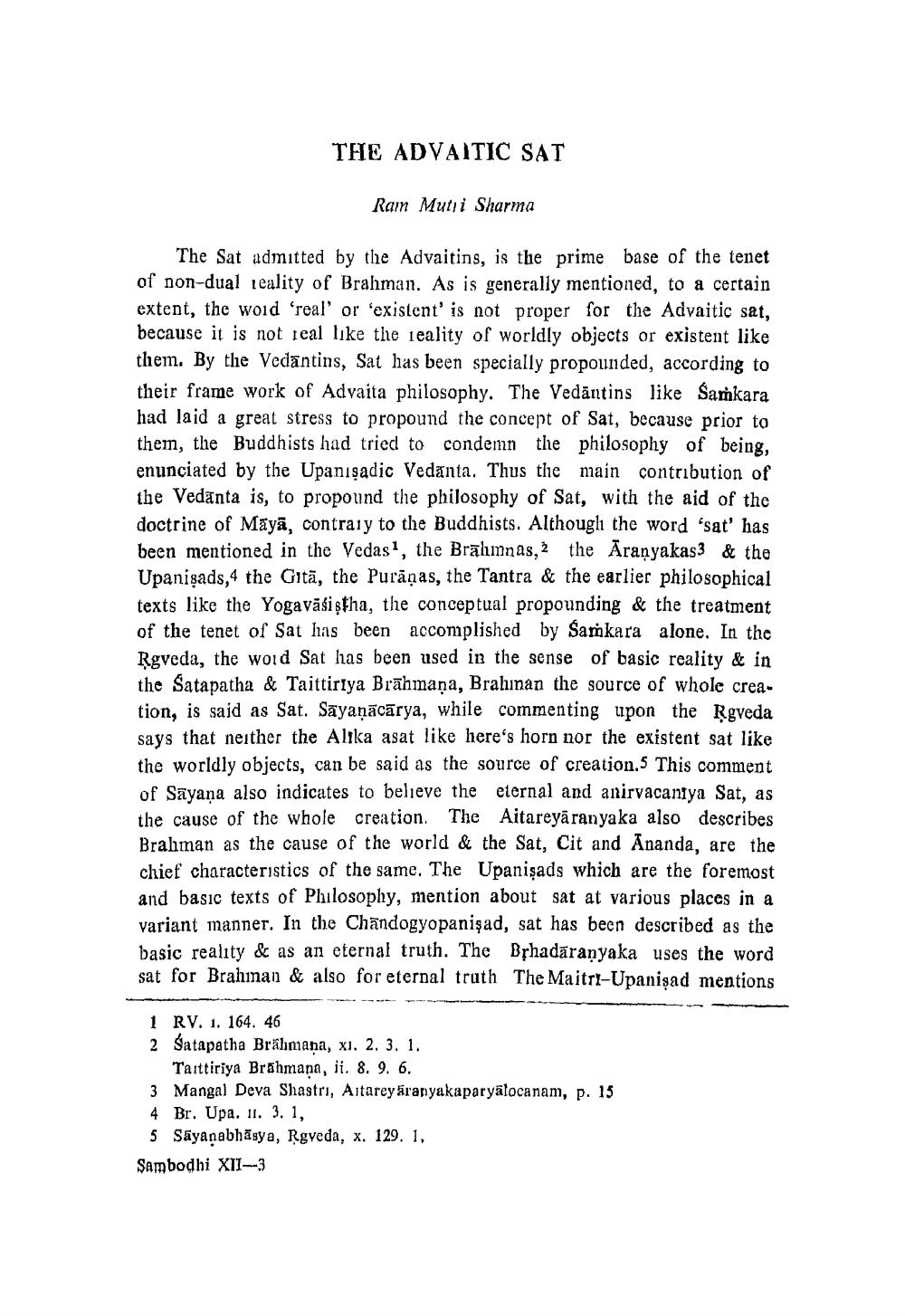________________
THE ADVAITIC SAT
Rain Mutii Sharma
The Sat admitted by the Advaitins, is the prime base of the tenet of non-dual reality of Brahman. As is generally mentioned, to a certain extent, the word 'real' or 'existent' is not proper for the Advaitic sat, because it is not real like the reality of worldly objects or existent like them. By the Vedantins, Sat has been specially propounded, according to their frame work of Advaita philosophy. The Vedāntins like Sarkara had laid a great stress to propound the concept of Sat, because prior to them, the Buddhists had tried to condemn the philosophy of being, enunciated by the Upanışadic Vedanta. Thus the main contribution of the Vedānta is, to propound the philosophy of Sat, with the aid of the doctrine of Māyā, contrary to the Buddhists. Although the word 'sat' has been mentioned in the Vedas, the Brāhmnas, 2 the Aranyakas3 & the Upanigads,4 the Gitā, the Purāņas, the Tantra & the earlier philosophical texts like the Yogavāsiştha, the conceptual propounding & the treatment of the tenet of Sat has been accomplished by Samkara alone. In the Rgveda, the word Sat has been used in the sense of basic reality & in the Satapatha & Taittiriya Brāhmaṇa, Brahinan the source of whole creation, is said as Sat. Sayaņācārya, while commenting upon the Rgveda says that neither the Alika asat like here's horn nor the existent sat like the worldly objects, can be said as the source of creation. This comment of Sayana also indicates to believe the eternal and anirvacanfya Sat, as the cause of the whole creation. The Aitareyāranyaka also describes Brahman as the cause of the world & the Sat, Cit and Ananda, are the chief characteristics of the same. The Upanişads which are the foremost and basic texts of Philosophy, mention about sat at various places in a variant manner. In the Chandogyopanişad, sat has been described as the basic reality & as an eternal truth. The Brhadaranyaka uses the word sat for Brahman & also for eternal truth The Maitri-Upanişad mentions
1 RV. 1. 164. 46 2 Satapatha Brahmana, xi. 2. 3. 1.
Taittiriya Brahmana, ii. 8. 9. 6. 3 Mangal Deva Shastri, Aitareyaranyakaparyalocanam, p. 15 4 Br. Upa. 11. 3. 1, 5 Sayanabhāsya, Rgveda, x. 129. 1, Sambodhi XII-3




